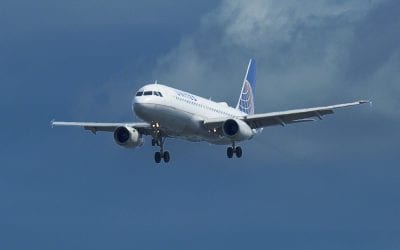For years, many travelers wouldn’t consider an electronic ticket if there was a paper alternative, now, they are so reliant on ticketless travel that they make a lot of mistakes. The same with maps and GPSs.
My client, who shall remain nameless, travels internationally several times a year. This time, however, she was just making a simple Amtrak trip between Washington DC and New York, with a paper ticket in hand.
When she arrived at the station she looked around for a similar check-in kiosk that the airlines use. The closest thing she found was a ticket machine. She inserted her credit card in hopes of getting a boarding pass. What she got, was a second ticket.
The ticket she already had would have allowed her to board the train too. But she didn’t ask anyone and so ended up double charged, actually paying more for the second ticket (Fortunately, we were able to get a refund on the original later.)
Airline kiosks have their own problems too, especially in the areas of upgrades (it’s not always clear which are and which are not paid options, especially when travelers are in a hurry. And the automatic rebooking programs in case of delays often makes travelers think they have no other options, so they accept a less-than-ideal alternative.
I’ve also recently noticed that the same clients who once used to carefully print e-ticket copies, now are relaxed enough that they may call up on the way to the airport asking, “What flight am I on?” “What airline am I on? And sometimes, “What airport do I go to?”
It may be that everyone is just overloaded with information, but most agents I know report a lot more clients “discovering” at the last minute that their flights are wrong, even after approving an initial email, than in the days of paper tickets.
Here’s an extreme example.
A client sent an email to a meeting attendee, headlined “Travel information for the ‘Blank’ meeting on ‘Blank date.'” The email itself gave contact information for our agency and other details so the attendee could book flights through us and charge the company. The traveler, so used to electronic tickets, assumed that the email already contained e-ticket information, and didn’t open it until two days before the flight to see their schedule.
Over-reliance on technology can show up in other areas too. I’ve had clients insist they couldn’t possibly drive a car without GPS, even in a city they visit regularly. Maps apparently are no longer always an option. And all GPS veterans know Google/Mapquest directions have been the downfall of more than one traveler. A small error, in reading or in copying down the directions, can result in being miles off course.
Unlike old-fashioned map reading, where “hmm, this street or suburb is past our destination,” mistakes are not as obvious, especially for travelers who are just using the written directions without an accompanying map.
(When using online direction, keeping track of the miles between instructions helps, but it’s easy to lose track. And in some cities, streets and highways change names regularly, which can add to the confusion.)
There are other examples, another common one is outdated sites that aren’t obviously out of date. This results in clients asking about hotels or shows that no longer exist, among other things.
And to be fair, it’s not so much the technology, but the reliance on it, that usually causes problems. In fact, two of the most dreaded phrases in the industry are “I got this email from…” fill in the blank with airline/hotel or cruise company, or “I saw it on the Internet.”
Janice Hough is a California-based travel agent a travel blogger and a part-time comedy writer. A frequent flier herself, she’s been doing battle with airlines, hotels, and other travel companies for over three decades. Besides writing for Travelers United, Janice has a humor blog at Leftcoastsportsbabe.com (Warning, the political and sports humor therein does not represent the views of anyone but herself.)




